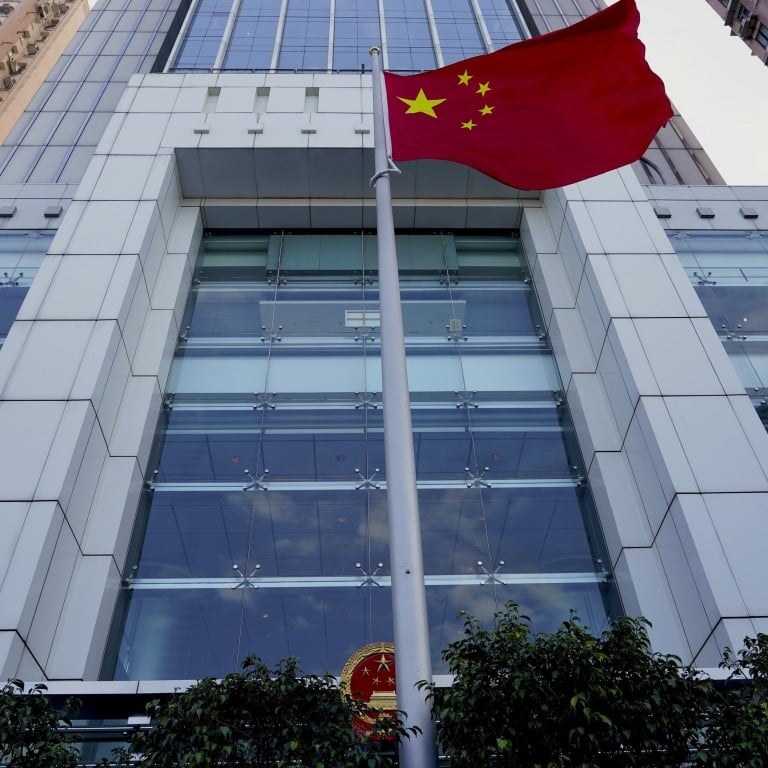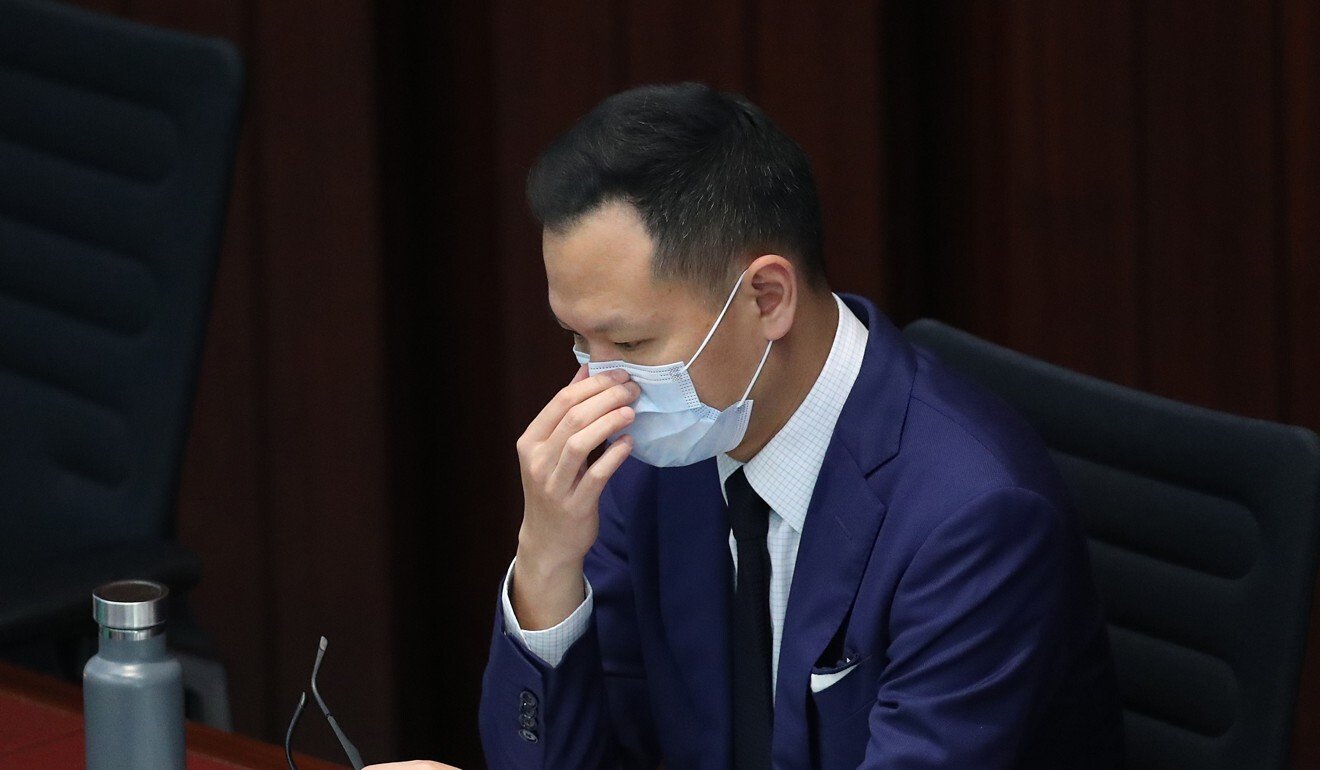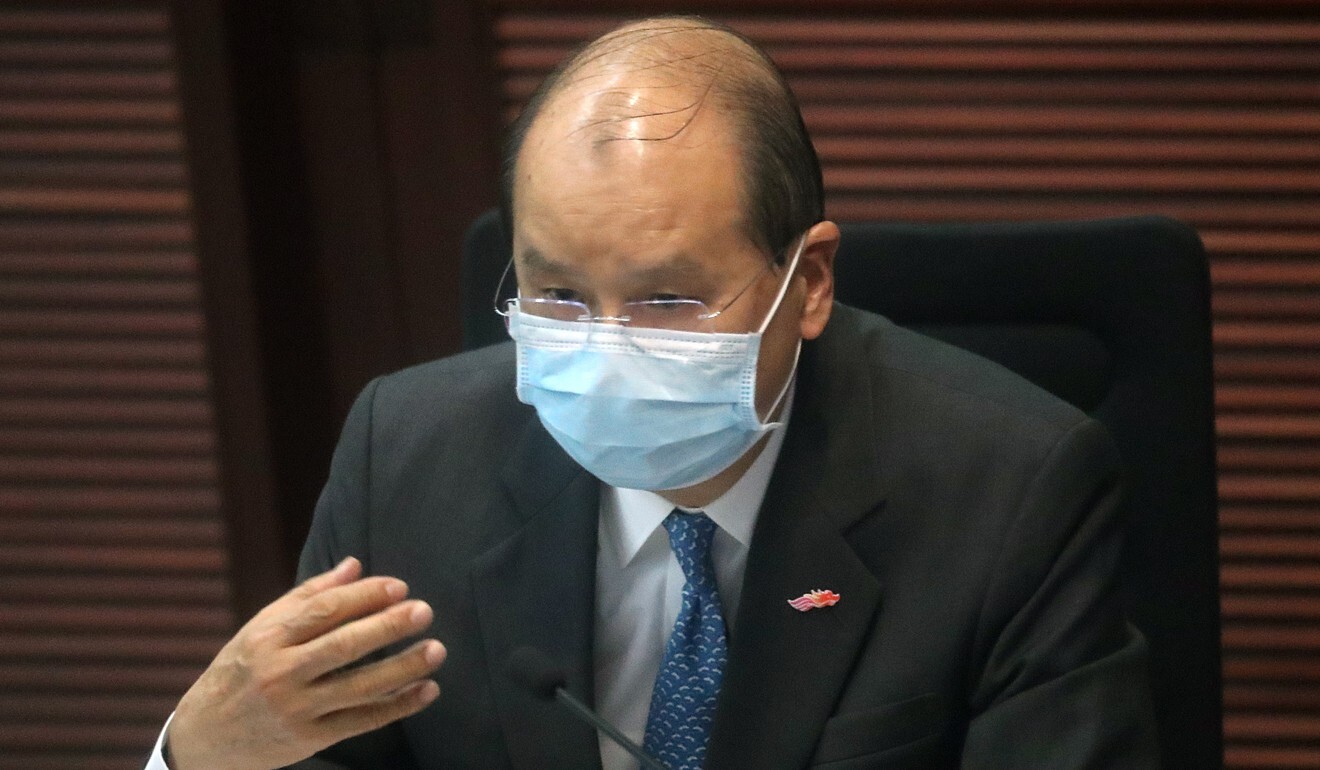
Beijing’s liaison office says it has right to handle Hong Kong affairs, as provided by constitution and Basic Law
- Central government arm defends attack on ‘filibustering’ lawmakers, arguing its work falls outside the scope of Article 22
- But democrats say the criticisms amount to interference in local matters and ‘one country, two systems’ is being ‘torn apart’
Beijing’s top office in Hong Kong has rebutted accusations it was interfering in the city’s affairs in a strongly worded statement saying it had the responsibility and right to “supervise” how the “one country, two systems” policy was being implemented.
The fresh salvo marked the second time this week the central government’s liaison office has commented on the power Beijing exerts over the city and comes amid a tug of war for control of the House Committee in the Legislative Council, which sets the agenda for the weekly meetings, including when bills are put to a final vote.
The opposition pan-democrats, who have blocked the election of the chair to the committee, have come under repeated attacks this week not just from the liaison office, but also Beijing’s two other heavyweights in the city – the Hong Kong and Macau Affairs Office (HKMAO) and the representative for the Foreign Affairs Ministry.
Analysts pointed out it is exceedingly rare for all three to deliver such a sustained criticism on local politics, let alone in the span of a few days.

The liaison office sharply expanded its attack on Friday, arguing the two agencies were not circumscribed by Article 22 of the Basic Law, which states no department directly under the central government may interfere in local matters.
In representing the central government, [the offices] have the right to exercise supervision
In a press release responding to media queries and presented in a question-and-answer format, the liaison office said the two agencies were “authorised by the central government to handle Hong Kong affairs”, and did not belong to the category of “departments”.
“In representing the central government, [they] have the right to exercise supervision and express solemn attitudes on affairs regarding Hong Kong and the mainland, in order to ensure correct implementation of the Basic Law, the normal operation of the political system and the overall interests of society,” the statement said.
The two offices had their authority from the country’s constitution and the Basic Law. “How else can these two bodies push forward the implementation of ‘one country, two systems’ in Hong Kong?” it said.
It was “beyond doubt”, they were within their rights to comment on Legco’s inability to function, the liaison office said. “A few legal professionals fully understand this logic but accused the two agencies for breaching Article 22. They deliberately misinterpreted the Basic Law and misled the public.”
Hong Kong police have duty to aid, not hinder media, union argues in court
The office again blamed legal sector lawmaker Kwok, saying the central government should not “sit by and do nothing” about the use of filibustering tactics to delay the naming of a chairman while he presides over the committee. It accused him of abusing his power and violating Legco rules.
“[The two agencies] must take an interest in it and supervise the matter, according to the need of ruling Hong Kong in accordance with the law,” the statement said.
“Such moves without a sense of national dignity blatantly betrayed the interests of Hong Kong and the country and breached the bottom line of ‘one country, two systems’,” the office said.
It warned politicians who “colluded with foreign forces” against putting their political gain above their duty to the city, saying at least twice that “otherwise they will have to foot the bills for their own acts”.
Responding to the latest statement, Kwok said it was “a deliberate distortion of the meaning and the policy intent behind Article 22”, and challenged the office to provide evidence of his misconduct.
I do not mind being criticised, but you are tearing one country, two systems apart
“I do not mind being criticised, but you are tearing one country, two systems apart, and turning Hong Kong’s internal affairs into something the [two offices] can meddle with,” he said.
Kwok claimed the office was threatening him and that amounted to interference in Legco affairs, but he would not change the way he handled the election.
The Democratic Party’s James To Kun-sun said the office had stepped over the line with its accusations that Kwok had violated Legco’s house rules, calling it an internal matter.
“They don’t even disguise it, I think this is a total interference of … autonomy,” To said.
But Chief Secretary Matthew Cheung Kin-chung backed the office’s statement, saying the agencies were “no ordinary departments”.

“The functions of the two offices differ from normal main departments,” Cheung said. “Their concerns for Hong Kong and voicing opinions is part of their duties.”
Executive councillor Ronny Tong Ka-wah said the liaison office’s interpretation of Article 22 differed from his own understanding.
“The liaison office excludes the ‘central government’ itself from the departments under the central government when it argues that as representatives of the central government, its expression of concern about Hong Kong affairs does not amount to interference in the city’s internal affairs,” Tong said. “Such interpretation is not without controversy. But we should try to avoid such arguments as much as possible.”
Beijing’s attack on Hong Kong opposition viewed as ‘taste of what’s to come’
New People’s Party chairwoman Regina Ip Lau Suk-yee, a former security minister, said pan-democrats had “misread” the Basic Law.
“It is not like the mainland’s agriculture department is interfering with ours; the reading cannot be so narrow,” Lau said.
She said Britain also had a Hong Kong Department in place for the city’s affairs before the handover in 1997. “What’s the problem? I was supervised too back then,” she said.
Lau Siu-kai, vice-president of the semi-official Chinese Association of Hong Kong and Macau Studies, said the liaison office’s statement indicated the central government’s stance it was empowered to state its position on Hong Kong’s internal affairs when it affected the implementation of the one country, two systems policy.
The liaison office also hit out at a Reuters report that claimed the independence of Hong Kong’s judicial system was under assault from the Communist Party leadership, saying that “Beijing never interfered with judgments made by courts”.
“If someone or any media viciously sensationalise those unfounded topics again, it can only be understood as having ulterior motives to see the world in chaos,” it said.
Secretary for Justice Teresa Cheng Yeuk-wah dismissed the report, saying it had no factual basis.



